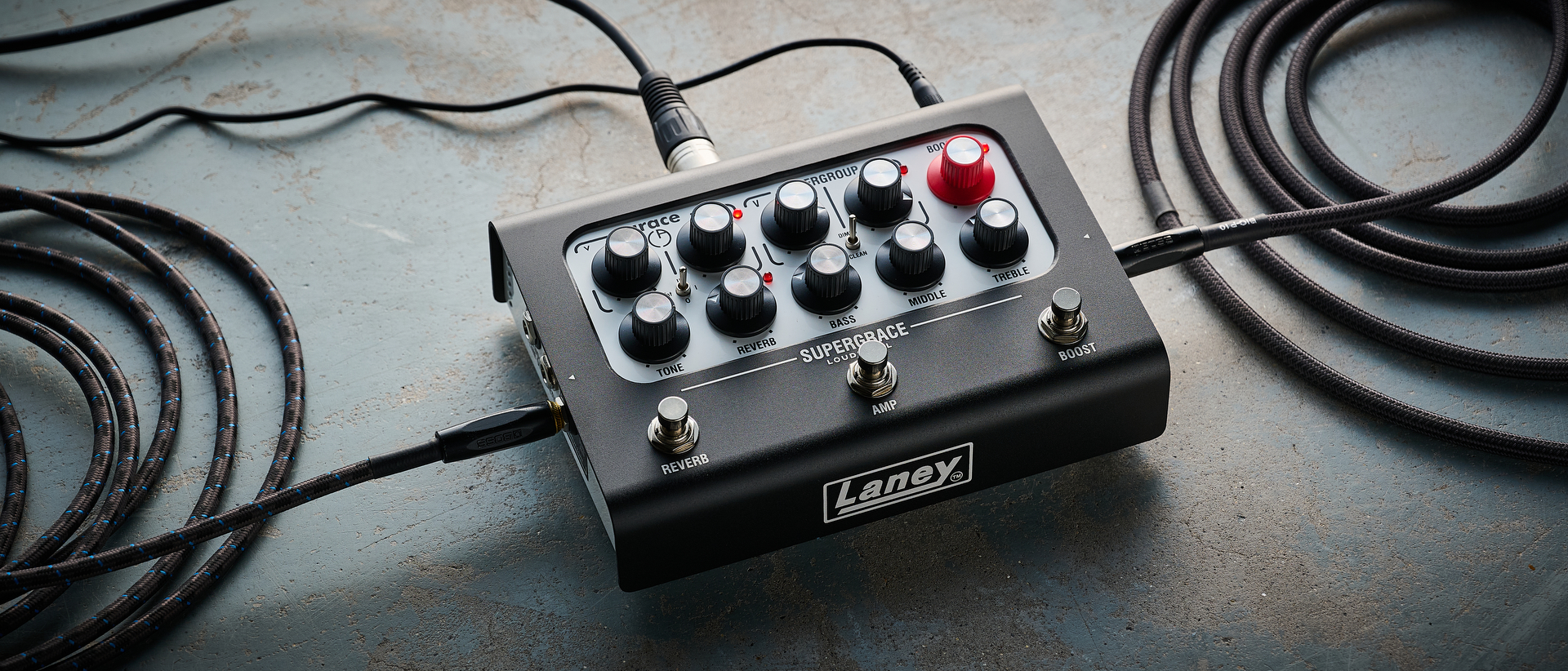Intensive 30-Minute Workout for Guitarists On the Go
Wanna get better but are pressed for time? Here's a quick, intensive guitar "workout" that can be completed in 30 minutes.
All the latest guitar news, interviews, lessons, reviews, deals and more, direct to your inbox!
You are now subscribed
Your newsletter sign-up was successful
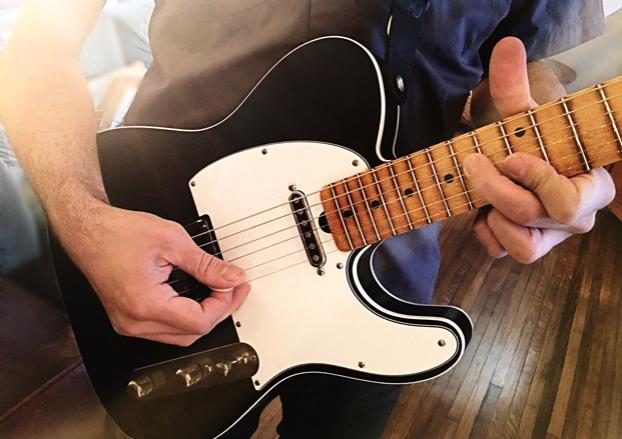
Whether you're a professional guitarist or a hobbyist, finding time to practice can be difficult.
We all have busy lives and responsibilities that distract us from our playing. For this reason, I've developed a quick, intensive guitar "workout" that can be completed in 30 minutes. You can use this by itself as a quick practice when time is limited or incorporate it into a longer practice session. Either way, this workout will help develop your playing in a number of important areas.
The workout involves playing a diatonic scale with specific sequences chosen to improve important areas of your playing. You will improve your knowledge/theory of the scale across the whole fretboard and also improve the speed/accuracy of your picking technique. For this workout, you are going to need a metronome.
For my examples, I am using the A minor scale. You will play each of these sequences to a metronome; when completed, you will increase the tempo and repeat all of the sequences again. You want to begin at a slow tempo, around 80 bpm, and after completion increase by 10 bpm (90, 100, 110, 120, etc.).
The sequences are of varying difficulty, and as soon as one becomes too difficult, you should drop that sequence and continue with the rest. You should make a note of the highest tempo reached for each sequence so you can chart your progress over time. I have included target bpm's for each sequence. If you start at 80 bpm and take each sequence to its target, you should complete the workout in around 30 minutes. Of course, if you are an advanced player, you might be able take each sequence much higher than the target tempos.
For each sequence, I've given you the tab and an audio example playing the sequence at 80 bpm and then at the target bpm.
Linear Sequences (Target: 160 bpm)
All the latest guitar news, interviews, lessons, reviews, deals and more, direct to your inbox!
These sequences focus on playing the diatonic scale as "four-notes per sting" instead of the usual "three-notes per string." The idea is to use all four fingers when fretting the scale, as highlighted in the first sequence.
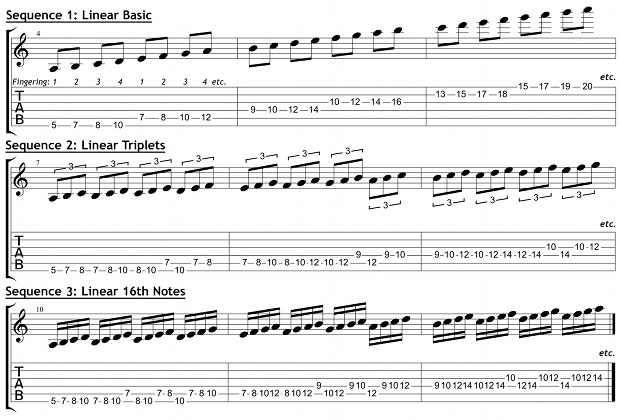
Interval Sequences (Target 120 bpm)
These focus on playing the diatonic scale in intervals across three octaves. For this workout, we are using 3rd's, 4th's and 5th's. Note: Advanced players also will be able to play the scale in 6th's and 7th's.
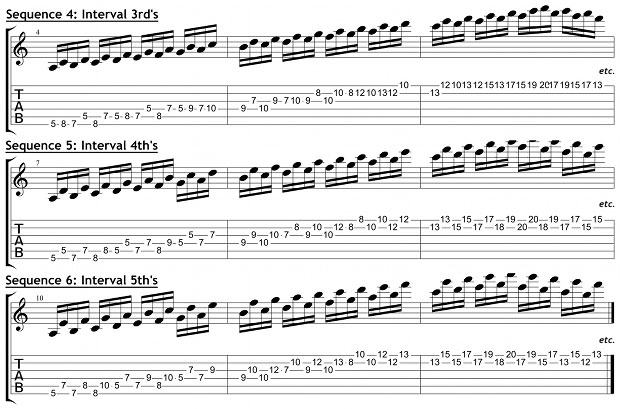
Arpeggio Sequences (Target 120 bpm)
You've probably seen the previous sequences before, but here's something I came up with that's fairly unique. These sequences involve playing the scale across two octaves as arpeggios. The first sequence is played as triad arpeggios (I-III-V). The second sequence is played as 7th arpeggios (I-III-V-VII).
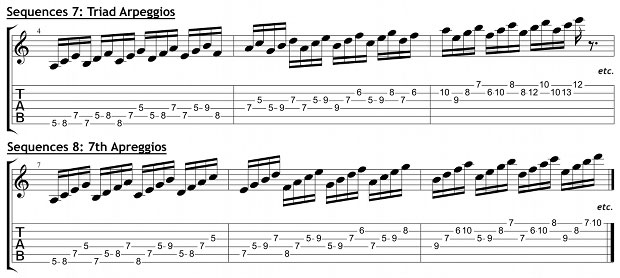
These sequences could be applied to any diatonic scale in any key. After mastering A minor, try experimenting with different scale. If you have any questions or suggestions, feel free to leave me a comment. Good luck!
Will Wallner is a guitarist from England now living in Los Angeles. He recently signed a solo deal with Polish record label Metal Mind Productions for the release of his debut album, which features influential musicians from hard rock and heavy metal. He also is the lead guitarist for White Wizzard (Earache Records) and in 2012 toured Japan, America and Canada. Follow Will on Facebook and Twitter.
